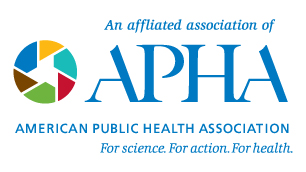Commitment to Health Equity and Anti-Racism
OPHA is working to become an anti-racist and health equity centered organization that centers values of community, partnership, inclusion and equity, learning, action, organizational sustainability, optimism and honesty. We believe in protecting and promoting health and health equity for all people in Oregon, especially those who experience systemic and structural inequities, including Black, Indigenous, and communities of color, immigrant and refugee, disability, undocumented, LGBTQIA+, rural, houseless, aging, farmworker, and others.
Strategic Goal
The Oregon Public Health Association is committed to being an anti-racist organization that puts our values of diversity, equity, and inclusion into practice. OPHA acknowledges the inequitable health outcomes, and the deep and lasting impacts of structural and pervasive racism on marginalized populations, in particular for communities of color. The OPHA Board of Directors, leadership, and staff will use the Justice, Equity, Diversity, and Inclusion Organizational Action Toolkit developed by the American Public Health Association as our guide. The Toolkit contains strategic and tactical day to day actions.
Definitions and Statements
Organizational Timeline
- In 2013, as part of a strategic planning process, the board of directors adds equity and inclusion to the organizational values. The strategic plan aspires to embed equity in all organizational efforts.
- In 2017, board member Tamara Falls conducts a three-part Cultural Competency, Equity, and Institutional Racism training for the board.
- In 2018, the OPHA bylaws are revised to be gender neutral.
- In 2018, the Nominations Committee engages in strategic outreach to racially diverse candidates. Racial diversity of board members increases significantly.
- In 2019, a DEI Workgroup is created at the annual board retreat.
- 2020, the DEI Committee is codified in the bylaws.
- In February of 2020, all board meetings become virtual for all meetings to allow for accessible participation of all board members.
- In March 2021, the board adopts statement of Support and Solidarity with the Asian American Community
- In June 2021, OPHA begins REALD (race, ethnicity, language, and disability) data collection. The change allows members to self-identify and reduce eraser of identities, and enables OPHA to evaluate membership, assess opportunities for outreach and engagement, and improve equity and inclusion.
- In October 2021, OPHA creates the Health Equity Champion award.
- In 2021, OPHA adopts a Confidentiality Statement and Policy for member data.
- In 2022, a three-part, nine-hour anti-racism training is facilitated by Engage to Change for the board of directors.
- In 2022, OPHA secures a technical assistance grant from Kaiser Permanente and partners with an attorney to review and update the bylaws through an anti-racist lens.
- In 2023, the board adopts a Code of Conduct, which requires all membership to agree to principles of respect, responsibility, fairness, and honesty.
- In 2024, position descriptions and scoring criteria are created for committees. Announcements to recruit members for committees are sent to all OPHA members, and members are appointed through the application process.
- In 2024, the Conference Planning Committee develops a subcommittee to update the abstract review process with an equity lens. For the first time, all members of OPHA are invited to be part of the abstract review process.
Advocacy
OPHA’s commitment to antiracism and health equity is embedded in the legislative endorsements we support, many of which address the social determinants of health and social justice. Examples of past OPHA endorsements include paid family leave, the Climate Action Plan, requirements for multilingual prescription labels, diesel pollution reduction, increasing the minimum wage, and paid sick days.
In the summer of 2020, OPHA began convening a group of leaders which became known as the Oregon Health Equity Task Force, composed of BIPOC, Tribal, Mixed Race, Urban dwelling Indians/Urban Indians, Immigrant and Refugee, and white community leaders.
The Task Force came together to ask the state of Oregon to declare racism a public health crisis, develop strategies to address systemic and structural racism, and to acquire state funds to implement the strategies. In 2021, the task force was successful in their effort to declare racism a public health crisis in Oregon.
|

